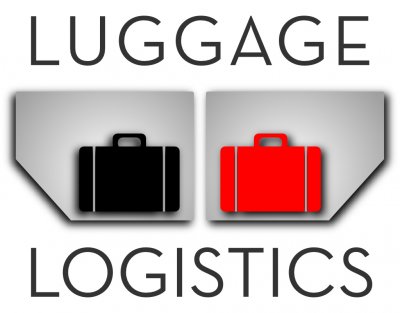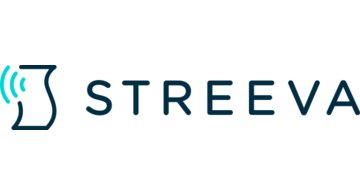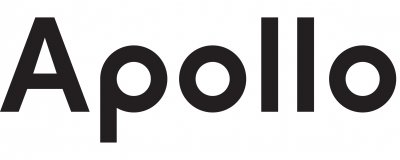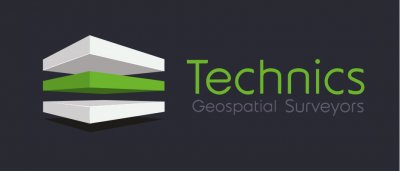
Innovate UK funding
Innovate UK is the UK’s innovation agency and part of UK Research and Innovation, a non-departmental public body funded by grant-in-aid from the UK Government. Our Business Enterprise Programmes team can help your organisation to identify academic expertise that can be included in your project and support the formation of your collaborative proposal to suitable funding schemes.
Overview
Innovate UK drives productivity and economic growth by supporting businesses to develop and realise the potential of new ideas, including those from the UK’s world-class research base. View information on the latest Innovate UK funding competitions.
The Innovate UK Smart Grants competition runs throughout the year, funding the best cutting-edge or disruptive ideas and/or concepts with a view to commercialisation. These can come from any area of technology, science or engineering, including arts, design, media or creative industries, and can be applied to any part of the economy.
Projects with durations between 6 and 18 months must have total eligible project costs between £25k and £500k. Projects with durations between 19 and 36 months must have total project costs between £25k and £2m. UK-based businesses of any size can lead a Smart Grant application. Research organisations in a consortium can share up to 30% of the total eligible project costs. Innovate UK fund between 25% to 70% of eligible project costs dependant on the size of the business and the type of project. Visit Smart Grants competition and other Innovate UK competitions for further details.
Contact us
If you would like to find out more about how to collaborate with the University of Surrey and apply for Innovate UK Smart Grants funding, please contact the Business Enterprise Programmes team at collaborate@surrey.ac.uk.
What makes a good collaborative Innovate UK project?
Here is a selection of some recent Innovate UK projects that have been successful in receiving funding and enabling us to work in collaboration :
Pollution Guardian
- Funder: Innovate UK
- Call: Open Call
- Lead company: All About the Product Ltd
- University department: Global Centre for Clean Air Research
Experimental development of an affordable air-quality alerting solution for use within vehicles which will transform the ability of both consumers with existing respiratory conditions and others wishing to protect their lungs to take actions to improve their health outcomes.
Low Cost Baggage Tracking

- Funder: Innovate UK
- Call: Emerging and Enabling Technologies, Round 2
- Lead company: Luggage Logistics
- University department: Computer Science
The development of an innovative bag tag recognition system that uses the improved capabilities of low-cost cameras and advances in image analysis and machine learning to individually identify bags as they are handled on their journey from check-in through to delivery to the passenger at their final destination. Mishandled baggage cost the air transport industry $2.3billion per annum, while fraudulent and exaggerated claims are becoming a growing problem. A bag tag recognition system, built around compact, low-cost cameras, advanced image analysis and machine learning should be able to address these legacy restrictions and provide airlines and airports with a credible and affordable option for more extensive baggage tracking.
Onward Journey Planner Assistant (OJPA)

- Funder: Innovate UK / Department for Transport
- Call: Accelerating Innovation in Rail 4
- Lead company: Proxad T/A Commuterhive
- Collaborating company: Snap Out Ltd, ManagePlaces Ltd
- University department: Computer Science
The Onward Journey Planner Assistant will address the need to assist rail customers with their onward journey by having suggestions provided to them, in a personalised and relevant way in advance to their arrival at the destination station. Rail customers are aware that there are a range of transport options available to them once arriving at the station, but assessing and deciding on the most relevant, based on price, timing and personal preferences, can be challenging. The industrial research will explore how different components of existing rail systems and the prototype software can interact to develop the current systems to improve customer experience through the provision of personalised onward journey options.
Interactive Locations and Intelligent Digital Signage (iLIDS)

- Funder: Innovate UK / Department for Transport
- Call: Accelerating Innovation in Rail 4
- Project lead: Enable ID
- Collaborating company: Arriva UK Trains, Rail Safety and Standards Board (RSSB)
- University department: Computer Science
The aim of the iLIDS project is to deliver an innovative solution for influencing passenger flow at the Platform-Train-Interface (PTI), whilst respecting industry realities regarding cost and practical implementation requirements. The concept is based on the innovative use of real-time data, and information relays, including station infrastructure and signage as a ‘responsive user-interface’, intelligently guiding passengers along the PTI to achieve more optimal boarding and alighting operations. A proof-of-concept prototype will showcase iLIDS ability to positively affect passenger movement in real-time, completing a technology innovation that will ready for market entry in 2019.
SwiftAid

- Funder: Innovate UK
- Call: Open Programme, Round 3
- Lead company: Streeva
- University department: Computer Science
SwiftAid is a R&D project to enables automatic Gift Aid on card donations and tax refunds for Higher Rate Taxpayers. During the past decade, there has been a shift towards card payments over cash, which has had detrimental effects on the amount of money charities have been able to collect with donation buckets. The industry is responding by adopting contactless terminals but currently, there is no seamless way of attaching Gift Aid to these donations. Approximately £575 million in Gift Aid is missed each year and the smaller the donation, the less likely Gift Aid will be attached. SwiftAid intends to address this.
SAFRON: Safe Operational Radio Network for railways

- Funder: Innovate UK / Department for Transport
- Call: Accelerating Innovation in Rail 5
- Lead company: Apollo Rail
- Collaborating company: TeleRail Networks, Network Rail Telecoms
- University department: Computer Science
SAFRON will demonstrate how public radio networks can be used for train-track communications for mixed applications including mission-critical and safety-related. SAFRON will create a prototype for a shared communications architecture such that any data-centric system can use the same connection from train-to-trackside at an assured level of priority, safety and security. This will reduce the cost for the train operating companies by eliminating duplicate connections and enabling them to make better use of data.
5G Above the Cloud (AtC)

- Funder: Innovate UK / Department for Transport
- Call: Connected and Autonomous Vehicles 3
- Lead company: Intelcomm
- Collaborators: Modus Operandi, Robert Bosch (UK)
- University departments: Mechanical Engineering, Surrey Space Centre, Computer Science
The Centre for Connected and Autonomous Vehicles (CCAV) sought the development of solutions for SAE level 4 automation (highly or fully automated) either directly or supporting autonomy through connectivity. 5G Above the Cloud aims to test the technical feasibility of a proposed system that will have the ability to maintain 5G Quality of Experience (100% coverage, 99.99% availability, less than 1 millisecond latency) needed to safely operate CAVs, particularly when outside of closed environments.
Ground penetrating radar (GPR) for localisation of autonomous vehicles

- Funder: Innovate UK
- Call: January 2018 sector competition: Strand 2, Emerging and Enabling Technologies
- Lead company: Technics Group
- University department: Mechanical Engineering
An accurate, robust and reliable localisation system is essential for the widespread adoption of autonomous vehicles. The performance of localisation systems depends highly on the information sources utilised, however the current on-board sensing of autonomous vehicles, using LiDAR and camera-based techniques suffers from different issues, such as cost, and accuracy in all-weather and all-light conditions. To address these issues, and to start to develop a solution utilising ground penetrating radar (GPR) technology for autonomous vehicle localisation, Innovate UK is supporting an initial project involving Guildford-based Geospatial Consultants Technics Group and the University of Surrey.
Building a flexible, extensible, cobolt platform for farmers

- Call: Farming Futures: automation and robotics
- Lead company: Fox Robotics Ltd
- University department: Centre for Vision, Speech & Signal Processing.
The FLEXBOT project aims to improve labour productivity in English soft fruit farming operations by integrating collaborative logistics robots (cobots) into the farms. Lead partner Fox Robotics will develop and showcase three primary outcomes: demonstrating the feasibility of supply chain interoperability between suppliers, exploring a sustainable business model for small to medium-sized fruit and crop farmers, and establishing an autonomous fruit-farming cobot undertaking various logistics tasks. The project aims to illustrate English fruit farms' scalable productivity and profitability while encouraging a small ecosystem of add-on suppliers and demonstrating the potential for cobot integration into other farm types.
Next-generation sustainable liquid packaging using only bio-based feedstock derived from non-food waste – Pulpex UK BioScience Initiative

- Call: Sustainable bio-based materials and manufacture
- Lead company: Pulpex Ltd
- University department: School of Mathematics and Physics.
This ambitious collaborative project draws on scientific expertise from across the UK to accelerate the adoption of bioprocessing-derived barrier coatings for Pulpex's breakthrough fibre bottles and other high-barrier packaging applications. The project offers deep industry and academic collaboration across the entire supply chain, converting non-food waste (e.g., shells from crustaceans and discards from root vegetables) into high-value high-barrier packaging that is market-ready and validated. The project aim is to deliver and accelerate commercial high-barrier products - derived from the bioprocessing/fermentation of chitosan and MFC from vegetal waste streams - that can be effectively applied to Pulpex fibre bottles at scale and certified as suitable for liquid food use.
A digital twin simulation platform for an AI-powered AMR for warehousing

- Call: Feasibility studies for Artificial Intelligence solutions
- Lead company: Cyclopic Ltd
- University department: School of Mechanical Engineering Sciences, Centre for Automotive Engineering, Connected and Autonomous Vehicles Lab.
The project will produce a feasibility study for a highly advanced drive-system that will operate an Autonomous Mobile Robot (AMR). The feasibility study will produce a digital twin simulation platform for the AI-powered AMR for warehousing.
Systems for autonomy in fail-operational environments

- Call: Commercialising Connected and Automated Mobility: Supply Chain
- Lead company: Preston EV Ltd
- University department: School of Mechanical Engineering Sciences, Department of Music and Media.
The SAFE (Systems for Autonomy in Fail-Operational Environments) project will develop and test technologies applicable for both NUIC (No User In Charge) and UIC (User in Charge) vehicle platforms integrating novel safety systems and subsystems capable of achieving SAE Level 4 (L4) autonomy within a wide range of Operational Design Domains (ODDs).
Smartawood site hoarding from construction plastics waste

- Call: Resource efficiency for materials and manufacturing
- Lead company: Plastecowood Ltd
- University department: School of Mechanical Engineering Sciences, School of Civil and Environmental Engineering.
Plastecowood have developed a concept for a construction site hoarding product and have completed desktop research for feasible supplies of suitable construction plastics waste that could be recycled to make the first carbon-negative construction hoarding. The aim is to develop a successful prototype which will render sufficient interest from the market to attract pilot project contracts, refine the whole system design and to then commercialise the first certified carbon-negative construction hoarding available on the market by late 2024.
Rapid and scalable single colour-centre implantation for single photon sources

- Call: Commercialising quantum technologies
- Lead company: Ionoptika Ltd
- University department: School of Mathematics & Physics
Ionoptika's new Q-One single ion implantation system is aimed squarely at the emerging area of single-atom QT device production. The remaining limiting factors are ensuring accurate ion placement (for array generation) and the availability of desirable ion sources from across the periodic table of the elements. Currently, a few sources are readily available, such as gallium and bismuth, but all are poor light emitters. Creating new sources is extremely difficult, requiring advanced expertise in metallurgy and ion beam physics, limiting commercial availability. Having this expertise is, currently, a pre-requisite to owning an ion implantation device, significantly limiting Q-One's market penetration. Ionoptika and the University of Surrey will test the feasibility of a new quality control process for confirming accurate ion placement and investigate two new sources more relevant to the quantum industry. Ionoptika will then be able to develop an improved Q-One machine suitable for research and manufacture of quantum technologies, the first such device in the market.
Wearable brain imaging for point-of-care stroke diagnosis
- Call: Biomedical Catalyst
- Lead company: Cortirio Ltd
- University department: School of Biosciences, Surrey Health Economics Centre.
Suspected brain diseases are common but challenging for ambulances. While most patients can go to standard hospitals, some need specialist surgery available at only 1 in 6 A&Es. Delayed treatment results in disability and death. The most common emergencies are stroke and head injuries. Finding those most at risk without scans is essentially impossible. Scans can only be done in hospitals using scanners the size of a car and the cost of a house. Patients who need specialist treatment are often transferred to the nearest non-specialist hospital first, then scanned, and then transferred to the specialist centre later, losing precious hours when minutes matter. A small, cheap and "smart" brain scanner would bring imaging into ambulances and save lives. We have developed a scanner the size and cost of a defibrillator, meaning it would be suitable as standard ambulance equipment. Our scanner can be small because it uses harmless (near-infrared) light. We believe our scanner will help paramedics to help stroke patients by diagnosing them at the roadside, and taking them straight to the right hospital, saving lives. In this project, we will develop our device further to detect strokes.
Clean hydrogen manufacture

- Call: Smart Grants
- Lead company: Clean Hydrogen Ltd
- University department: School of Chemistry and Chemical Engineering.
This project will optimise both the oxidation and redox units in terms of process variables, in addition to optimising the recirculating metal catalyst in terms of formulation and physical characteristics. Furthermore, the reduction and hydrothermal processes will be modelled using Aspen plus and COMSOL Multiphysics, respectively. These key data will be used to develop the pilot plant to be constructed and evaluated in a later project and to achieve TRL 7 as an Operational Prototype (Alpha Product).
Ensuring sustainability of pig farming with automated monitoring using machine vision and volatile organic compound sensors

- Call: Farming Innovation Programme
- Lead company: Innovent Technology Ltd
- University department: Centre for Vision, Speech and Signal Processing.
FarmSense is an intelligent user-friendly platform that brings together state-of-the-art image/sensor technologies combined with artificial intelligence (AI) to support farmers and their advisors in optimising livestock production whilst assuring the highest animal welfare standards. Compared to traditional labour-intensive farming methods where animals are visited periodically during the working day, our smart monitoring system continuously analyses animal growth, behaviour, and gas profiles along with the animal's day and night patterns. Our AI system learns how to automatically detect any changes in pattern indicating problems such as early disease onset, tail biting or abnormal eating/drinking behaviours. The system then delivers early on-screen alerts/prompts to farm workers. FarmSense's 24/7 monitoring thus provides farmers with an autonomous stockman tool: a 'hands-free' continuous early warning system for pig production that can be readily integrated into the UK pork supply chain.
Green Larixyne

- Call: Farming Innovation Programme
- Lead company: Bioextractions Wales Ltd
- University department: School of Chemistry and Chemical Engineering.
Downy mildew (Plasmopara viticola) is a devastating fungal disease of grapevine in all grape-growing areas of the world. Crop losses in individual years can be 100% if the disease is not controlled. The wet 2021 season resulted in significant crop losses in England due to this pathogen. There are no suitable sources of resistance in commercially acceptable varieties, so fungicides are the primary method of control. We aim to produce an organic pesticide to treat downy mildew for use in organic, biodynamic and standard viticulture.
Demonstrating the efficacy at scale of a novel data-protecting AI system for surfacing clinically-eligible patients for clinical trials

- Call: Biomedical Catalyst
- Lead company: Bitfount Ltd
- University department: School of Biosciences.
This project uses Bitfount Ltd's federated-machine-execution platform to enable Moorfields Eye Hospital's cutting-edge software models (AI-biomarkers) to scan millions of medical images and identify potential trial participants from this primary, objective source swiftly and accurately, leaving patient data and comprehensive lists of clinically-eligible trial candidates inside the hospital database. Our approach promises to massively increase the number of clinically-eligible participants suitable for screening and trial recruitment through fast, accurate, cheap identification, without data leaving the hospital. This project will demonstrate the approach in dry Age-related Macular Degeneration (AMD), which affects approximately 5% of Europeans aged 65 and over). Ophthalmology has the NHS' highest outpatient attendance rate and AMD is by far the UK's leading cause of blindness, increasing with an ageing population.
Harnessing court data using NLP and spoken language technology

- Call: Smart grants
- Lead company: Just: Access Ltd
- University department: School of Literature and Languages, Centre for Translation Studies.
Combining innovations in speech-to-text technology and Natural Language Processing, the Leeds-based JUST in collaboration with the University of Surrey aim to develop the very first automated transcription tool designed specifically for the Justice Sector, exploiting a known market gap for the automation of court transcription services and driven by a planned £2Billion digital court reform programme to be initiated from 2022/23 which will include the way court hearings are recorded and arising data stored.
Automated travel optimisation and scheduling for field-based services
- Call: The Sustainable Innovation Fund
- Lead company: Combine AI Ltd
- University department: Department of Computer Science, Surrey Centre for Cyber Security.
This project will deliver a prototype that will perform automatic travel optimisation and scheduling for field-based workers.